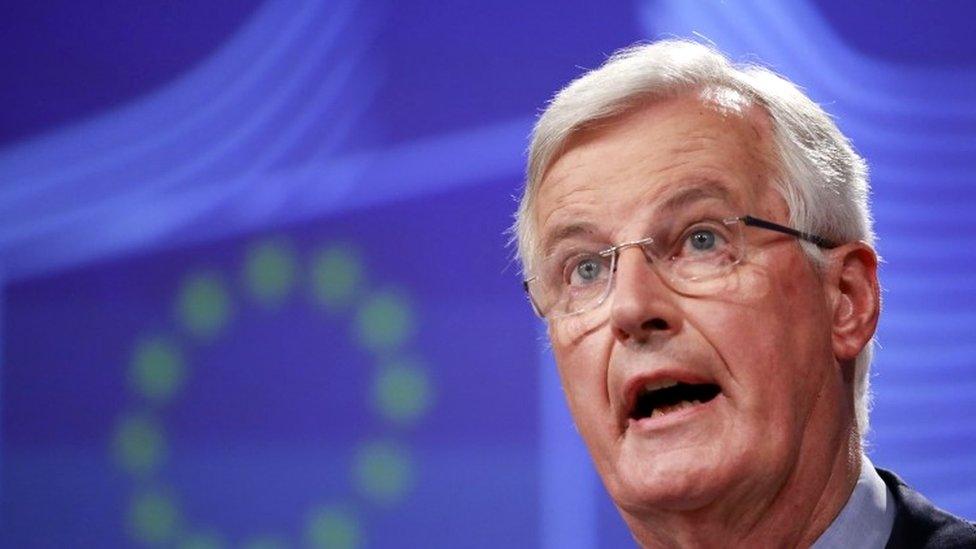Brexit: 'We're no closer to withdrawal agreement says Varadkar
- Published
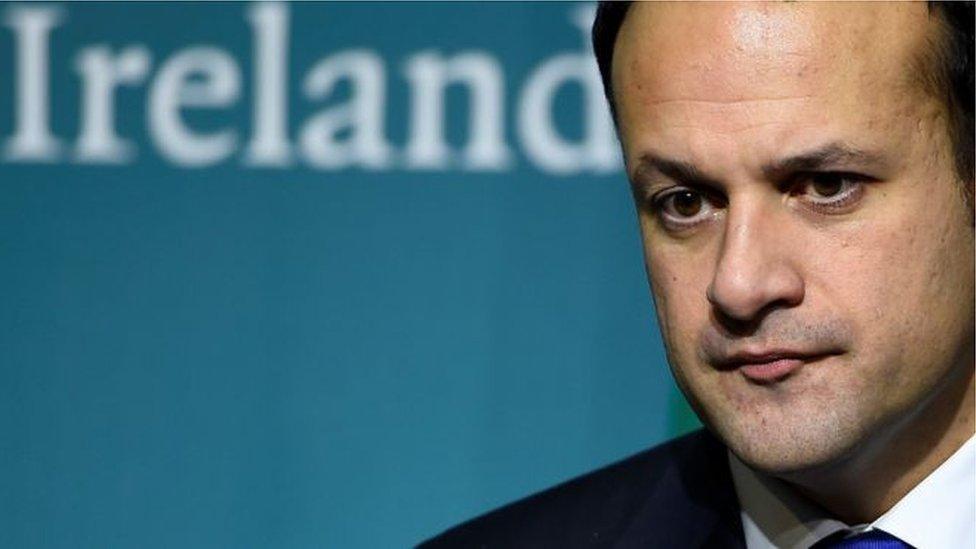
Taoiseach (Irish Prime Minister) Leo Varadkar has dismissed reports there has been progress on the Irish backstop.
"I don't think we're any closer to a withdrawal agreement than we were in March," he said.
"I can't report any progress at this stage unfortunately, but we'll keep working on it."
Mr Varadkar was speaking as he arrived for an EU leaders' dinner in Salzburg.
The backstop is an arrangement which will apply if the Irish border cannot be kept as frictionless as it is now in the context of a wider deal.
Both sides have agreed the need for a backstop, but not how it should operate.
The EU has proposed a backstop that would mean Northern Ireland staying in the EU customs union, large parts of the single market and the EU VAT system.
The UK government has rejected it as a threat to the integrity of the UK and has suggested a backstop that would see the UK as a whole remaining aligned with the EU customs union for a limited time after 2020.
Speaking in Salzburg, Mr Varadkar said: "We've yet to see an alternative text from the United Kingdom government that anybody in the European Union finds to be acceptable, that actually satisfies what we need, which is an assurance that there won't be a hard border between Northern Ireland and Ireland, and that that backstop would apply unless and until we're in a position to negotiate a new free trade agreement between the EU and UK," he said.
The Irish and EU position was as it had been from the start, he added.
"We want there to be a Withdrawal Agreement, a Withdrawal Agreement that provides for an orderly exit of the UK from the European Union.
"And we want there to be a transition period so people can adjust to any changes to the rules of trade that are going to take place.
"But we also have to have a backstop on NI and Ireland, one that assures us that a hard border will not emerge on our island, and that it has to be legally operable, and at this stage unfortunately the UK has not presented an alternative text to the EU text that we find acceptable."
Mr Varadkar insisted that an agreement in principle on the backstop needed to be in place by the October European Council.
He said the UK would have to move on its position.
Mr Varadkar is due to have talks with Theresa May in Brussels on Thursday.
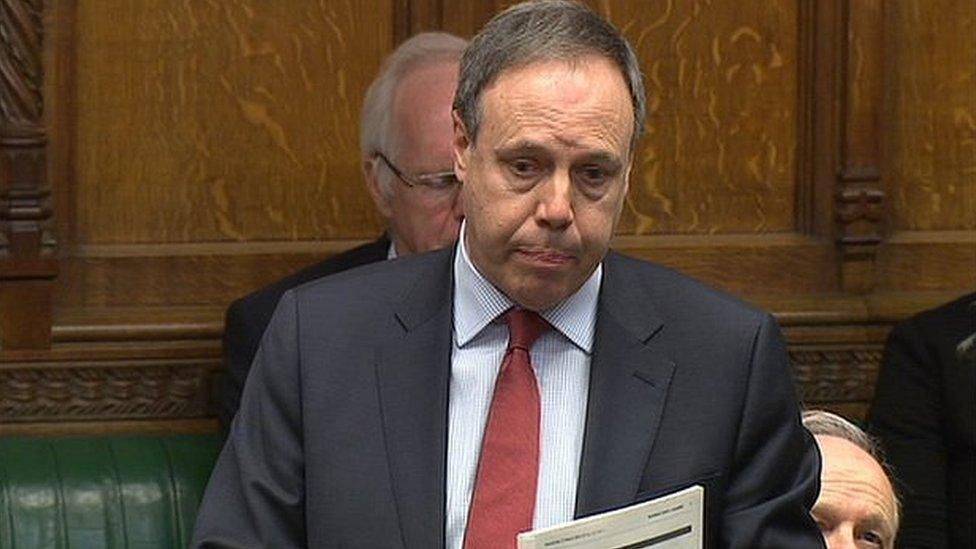
Mr Dodds said it was not only unionists who objected
The Irish border has proved to be a major issue in Brexit talks, and chief negotiator Michel Barnier has again said the EU is prepared to improve the language around the backstop proposals.
He said it would be "technical checks", and not a border.
However, Nigel Dodds, DUP deputy leader, said Northern Ireland would still be in a "different regime" to the rest of the UK.
The government relies on the DUP to get its Brexit legislation through parliament.

Analysis: John Campbell, BBC News NI business editor
Reports that the EU is prepared to amend or "improve" the language of the backstop are not news.
EU chief Brexit negotiator Michel Barnier first talked about improving the text in July.
He then went to the trouble of writing a newspaper article with the same sentiments in August, external before saying similar things again to the Commons Brexit committee earlier this month.

On Tuesday, Mr Barnier said the border checks must centre on ensuring standards are met and customs are paid.
"We are clarifying which goods arriving in Northern Ireland from the rest of the UK would need to be checked and where, when and by whom these checks could be performed," he said.
"We can also clarify that most checks can take place away from the border at a company premises or at the markets."
What will become of the Irish border when the UK leaves the European Union?
But Mr Dodds said the "fundamental point" is that "internal UK checks are only needed if it is intended to separate Northern Ireland from Great Britain".
"Despite the talk of improvements the backstop being insisted upon by the EU would mean a different regime for Northern Ireland compared to the rest of the UK," Mr Dodds said.
"It still means a border down the Irish Sea although with different kinds of checks.
"The fact is that both Theresa May and the Labour Party have said no British prime minister could accept such a concept. It is not just unionists who object."
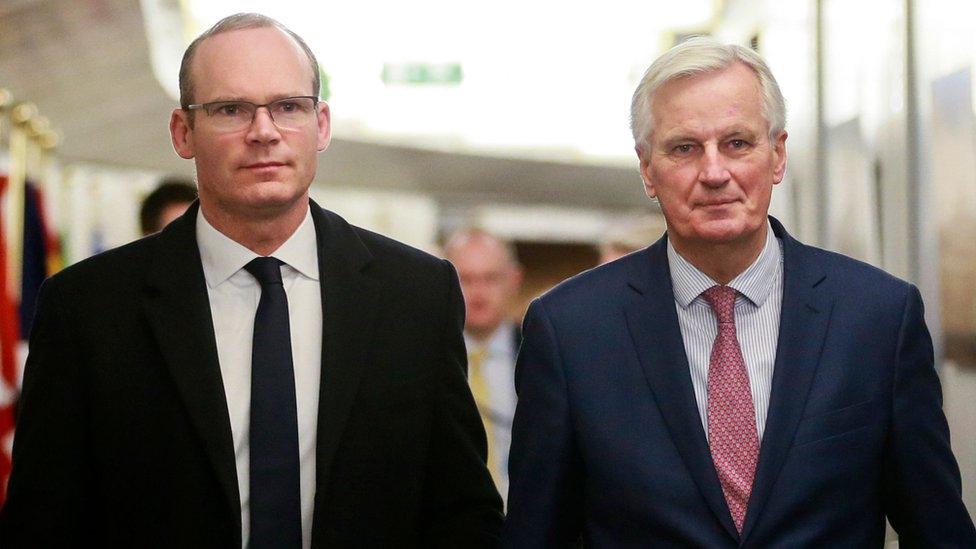
Simon Coveney and Michel Barnier discussed negotiations on the draft Protocol on Ireland and Northern Ireland
On Tuesday night, Ireland's deputy prime minister met with Mr Barnier in Brussels.
Simon Coveney said the Irish government wants EU leaders to be making "real decisions" in October.
At a summit later, Theresa May is expected to warn EU leaders not to demand the "unacceptable".
- Published19 September 2018
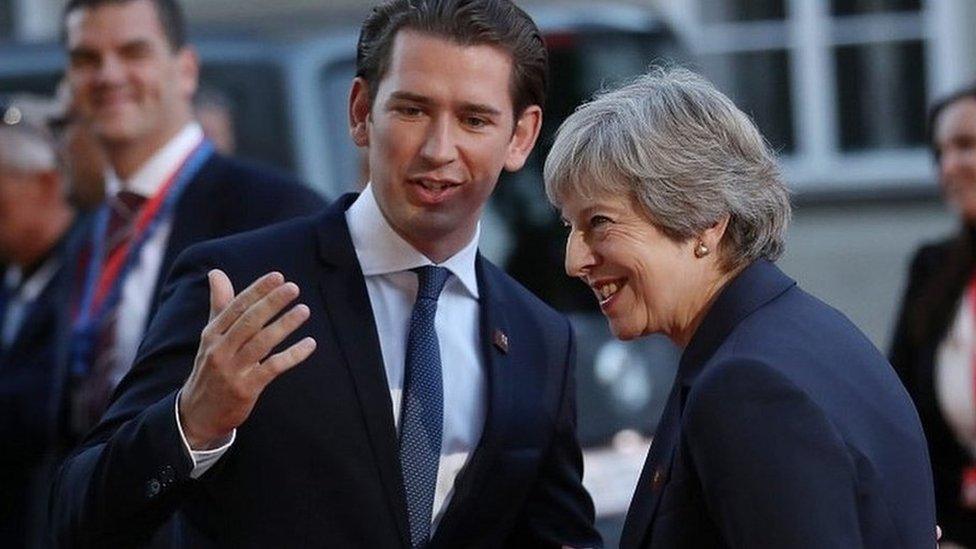
- Published18 September 2018
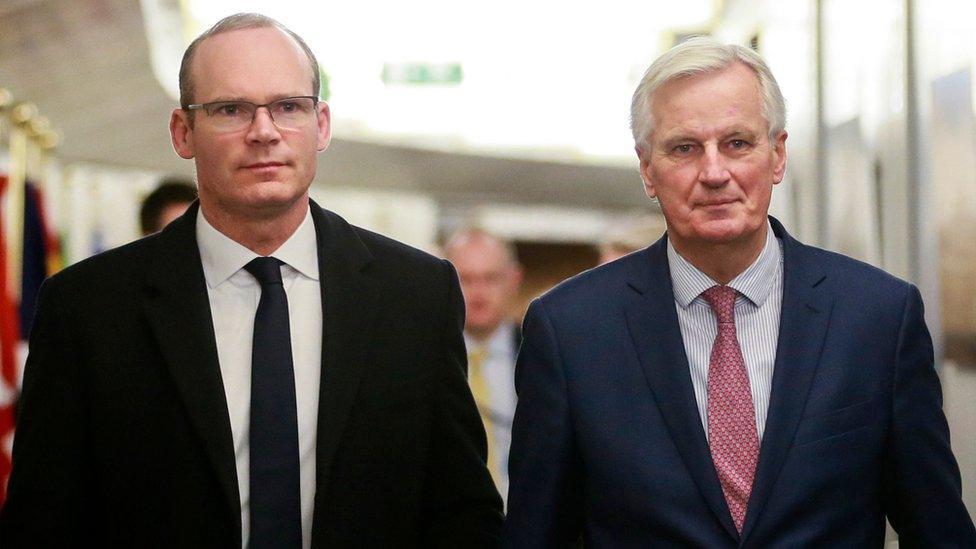
- Published2 September 2018
